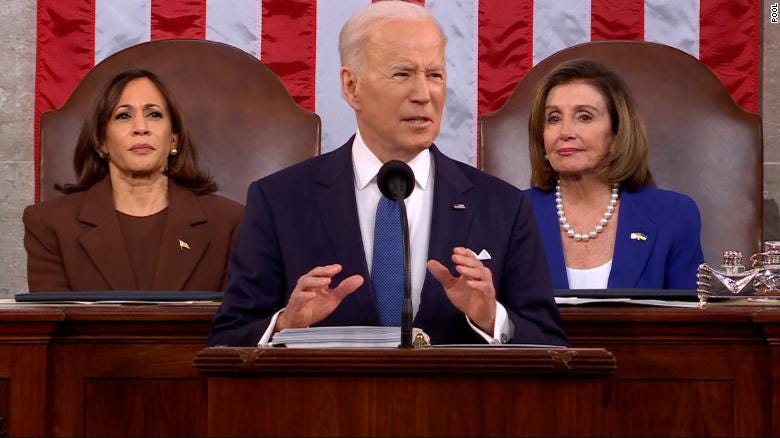In writing about Ukraine, I’ve tried to avoid referring everything back to American domestic politics. This generally feeds a syndrome that Robert Lieber referred to in this journal as “strategic narcissism,” in which Americans believe that everything turns on what American politicians say and do. However, in the current Ukraine crisis, a lot does hinge on perceptions of American power and likely actions, so reference to our trouble politics is in fact merited.
The first thing to say is how much utter contempt and disparagement of Joe Biden there is out there on the right. I posted a tweet at the beginning of the conflict saying how glad I was that he was President rather than Donald Trump, and was deluged by angry Trump supporters who regard our President as a weak and feckless leader suffering from dementia.
___STEADY_PAYWALL___
One small thing to be thankful for is that DJT is not in the White House as the Ukraine crisis unfolds. He'd side with Russia.
— Francis Fukuyama (@FukuyamaFrancis) February 22, 2022
Many of them loudly asserted what the former President himself has said, that Putin would never have invaded had Trump been in office. Some noted that the Russians invaded Ukraine in 2014 and 2022 under Democratic presidents, and cited various anti-Russian measures taken by the Trump administration. I then got into a rather heated argument with Niall Ferguson on Bari Weiss’ podcast, in which he too blamed the invasion on Biden’s weakness.
To me, these assertions are incomprehensible. Yes, Obama should have provided weapons and stronger sanctions after Russia’s takeover of Crimea and Donbas, and yes, it was disappointing when Biden dropped opposition to Nord Stream II last year. There are many factors leading Putin to invade, like the readiness of his forces and the energy situation in Europe. In an article mistakenly published on a Russian site in anticipation of a quick victory, the author noted that Moscow needed to move soon because Ukraine was growing stronger over time.
Biden at least was rooting for the right team. Trump has been in love with Putin and hostile to NATO and Ukraine from well before he took office. He has constantly praised Putin, and after the invasion continued to call him “smart” and “very savvy.” He got impeached the first time for trying to withhold arms from Ukraine, and considered but was finally dissuaded from both recognizing Russia’s takeover of Crimea and pulling the United States out of NATO. Trump’s admiration for Putin does not seem to be rooted in ideology, but rather in Putin’s personal style and perceived strength, and strongly indicates that he would like to rule as an authoritarian leader of the United States as well if he could get away with it.
Biden, by contrast, has done a masterful job up to this point in shoring up the NATO coalition, and bringing reluctant members like Germany around to strong sanctions. He has opened the floodgates for the supply of military equipment, and led the drive for unprecedented financial sanctions. When Trump was asked at CPAC what he would have done that Biden didn’t do, he said it was a “secret.” In my argument with Ferguson, I couldn’t get a coherent answer to this question either, since no one on the right has been advocating the direct insertion of U.S. or NATO forces into Ukraine.
Yet I do think that Putin’s invasion was prompted by his perception of American weakness. That weakness was not related to any specific actions that Biden did or did not take. Rather, it was based on what should be obvious to any outside observer: U.S. foreign policy is hobbled by the incredible polarization of the country, where the Republican Party has ceased being a loyal opposition and has come to regard the Democrats as bigger threats to the American way of life than Russia. After the invasion many did an abrupt U-turn from dismissing the crisis or saying they didn’t care about Ukraine to attacking the administration for being too weak. Their only consistent theme was opposition to whatever Biden was doing.
In this respect, January 6 may have been a critical event. Prior to that, Russia might have expected Biden to return the United States to its former internationalist role. The assault on the Capitol and the subsequent Republican effort to normalize it demonstrated that there was something deeply rotten in American society.
So America is indeed weak, both in perception and in fact. That weakness isn’t an attribute of the current occupant of the White House, but of a badly polarized society. The old bipartisan consensus supporting a strong international role for America in defense of democracy around the world is gone. Whether any of this explains the timing of Putin’s invasion is not at all clear. But in the long run polarization is a problem that needs to be solved if the United States is to regain its role in the future.


